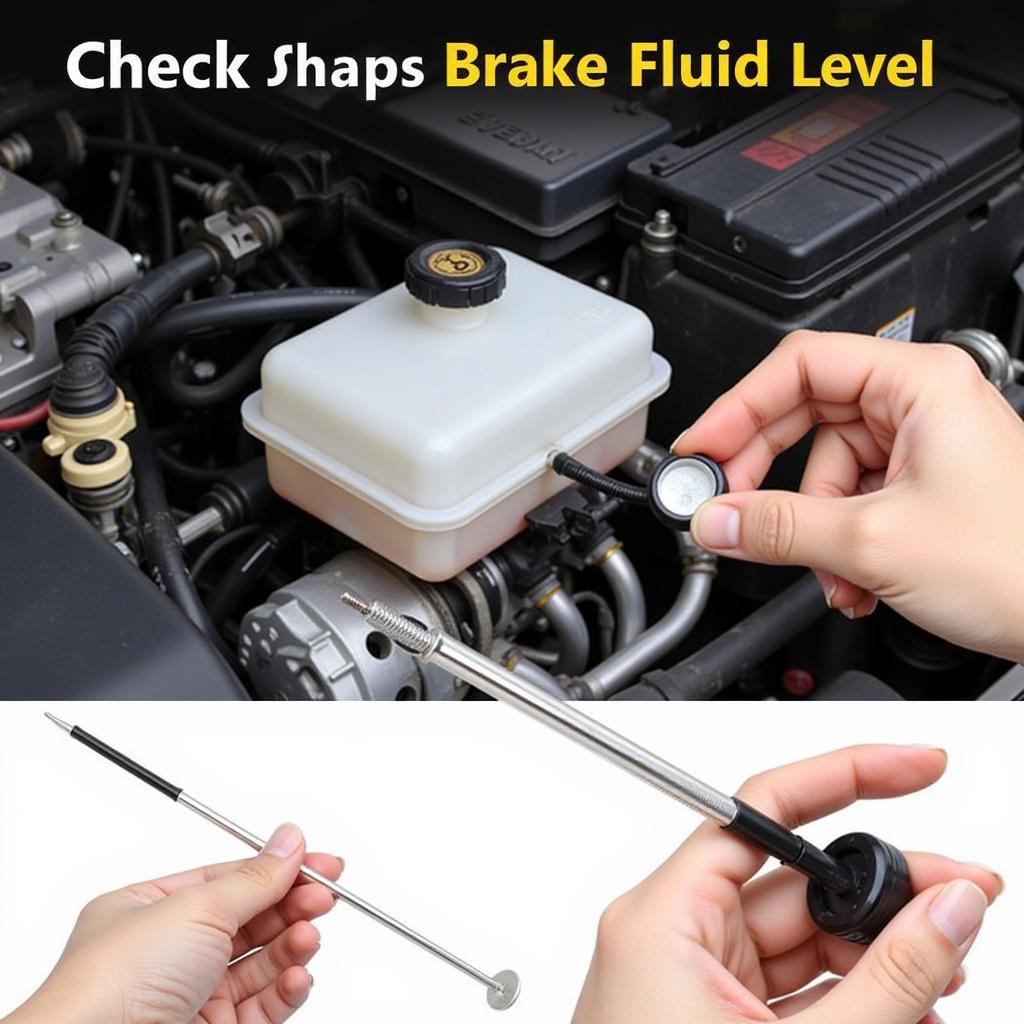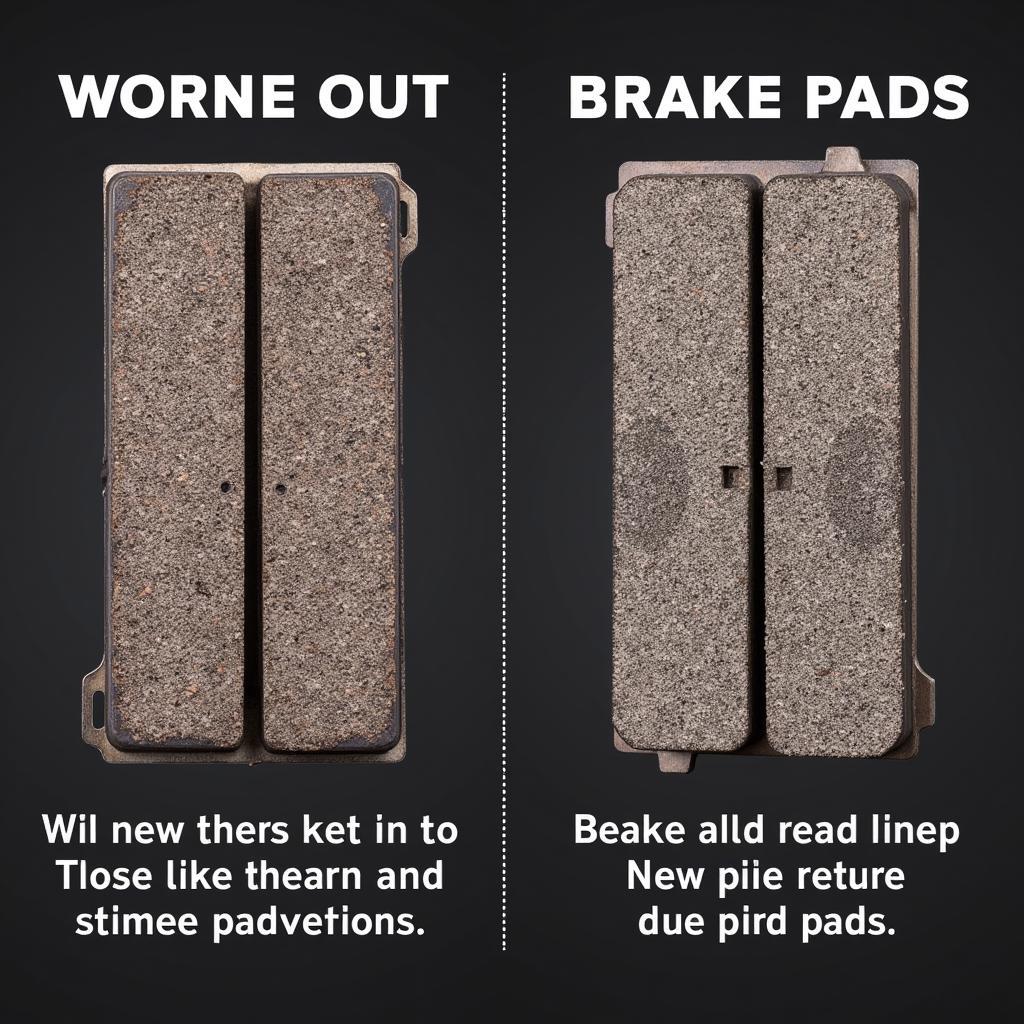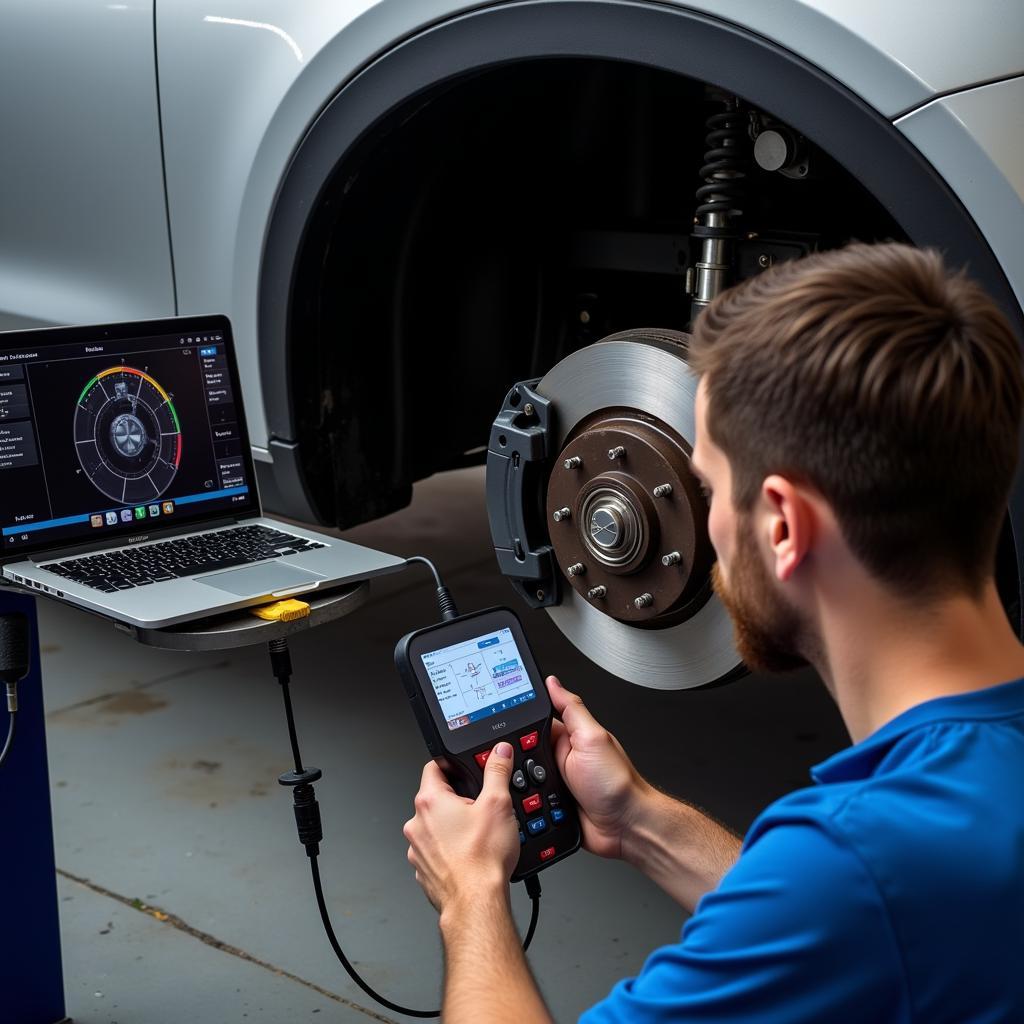The brake fault warning light on your dashboard is a crucial safety indicator. Ignoring this light could lead to serious problems, from reduced braking power to complete brake failure. Understanding why this light comes on, and knowing what steps to take, is essential for safe driving. Let’s explore the most common causes and solutions for this alarming signal.
Decoding Your Brake Fault Warning Light
Several issues can trigger the brake fault warning light. It could indicate low brake fluid, worn brake pads, a malfunctioning ABS system, or even a problem with the parking brake. Pinpointing the exact cause can save you time and money. If your brake warning light is on, don’t panic, but don’t ignore it either.
If you’re experiencing issues with your Toyota Camry’s parking brake, you can find helpful information on our guide: toyota camry parking brake warning.
Common Causes of a Brake Fault Warning Light
- Low Brake Fluid: This is the most common culprit. Brake fluid is essential for transferring force from the brake pedal to the brake calipers. Low fluid levels can drastically reduce braking performance.
- Worn Brake Pads: Brake pads wear down over time, and when they become too thin, sensors trigger the warning light. Continuing to drive with worn pads can damage your rotors and significantly compromise your ability to stop.
- ABS System Malfunction: The Anti-lock Braking System (ABS) prevents wheel lockup during hard braking. A fault in this system can illuminate the brake warning light. While you might still have normal braking function, the ABS won’t be operational, potentially increasing your stopping distance on slippery surfaces.
- Parking Brake Engaged: Sometimes the simplest explanation is the correct one. If your parking brake is even slightly engaged, it can trigger the warning light. Make sure your parking brake is fully released.
- Faulty Sensors: Occasionally, the sensors themselves can malfunction, triggering the light even when there’s no actual problem with the braking system.
 Checking brake fluid level
Checking brake fluid level
Troubleshooting Your Brake Fault Warning Light
If your brake warning light illuminates, follow these steps:
- Check the Parking Brake: Ensure the parking brake is fully disengaged. If the light remains on, proceed to the next step.
- Check the Brake Fluid Level: Locate the brake fluid reservoir under the hood and check the fluid level. If it’s low, add the correct type of brake fluid. If the level drops again quickly, you likely have a leak, which requires immediate professional attention.
- Inspect Your Brake Pads: If the fluid level is adequate, visually inspect your brake pads. If they appear thin, consult a mechanic for replacement.
 Comparison of worn brake pads and new brake pads
Comparison of worn brake pads and new brake pads
“Ignoring a brake fault warning light is like ignoring a ticking time bomb,” says automotive diagnostics expert, Dr. Emily Carter. “Even seemingly minor issues can escalate quickly, leading to costly repairs and potentially dangerous situations.”
You can find helpful resources on brake light bulb fault fluid warnings for a 2012 Ford Focus here: 2012 ford focus brake light bulb fault fluid warning.
When to Seek Professional Help
While some brake issues can be easily addressed, others require specialized knowledge and equipment. If you’ve checked the obvious culprits and the light remains on, it’s crucial to consult a qualified mechanic. Complex issues, like ABS malfunctions or faulty sensors, require diagnostic tools and expertise.
Problems with your dashboard brake warning lights and a potentially faulty ECU? Check out this resource: dashboard brake warning lights and faulty ecu.
 Mechanic using diagnostic tools on a car's brake system
Mechanic using diagnostic tools on a car's brake system
Conclusion
The brake fault warning light is a critical safety feature in your vehicle. Understanding its potential causes and taking appropriate action can prevent serious accidents and costly repairs. Regular maintenance and prompt attention to warning lights are key to ensuring safe and reliable braking performance. Remember, addressing a brake fault warning light promptly can save you time, money, and potentially, your life. Don’t hesitate to seek professional help if needed.
For those driving a Renault Scenic, this guide might be helpful: brake fault warning light renault scenic.
“Regular brake system checks are an investment in safety,” adds Dr. Carter. “Preventative maintenance can save you from unexpected breakdowns and ensure optimal braking performance.”
Have VW Passat parking brake problems and a fault warning light beeping? This article can provide insights: vw passat parking brake problems fault warning light beeping.
